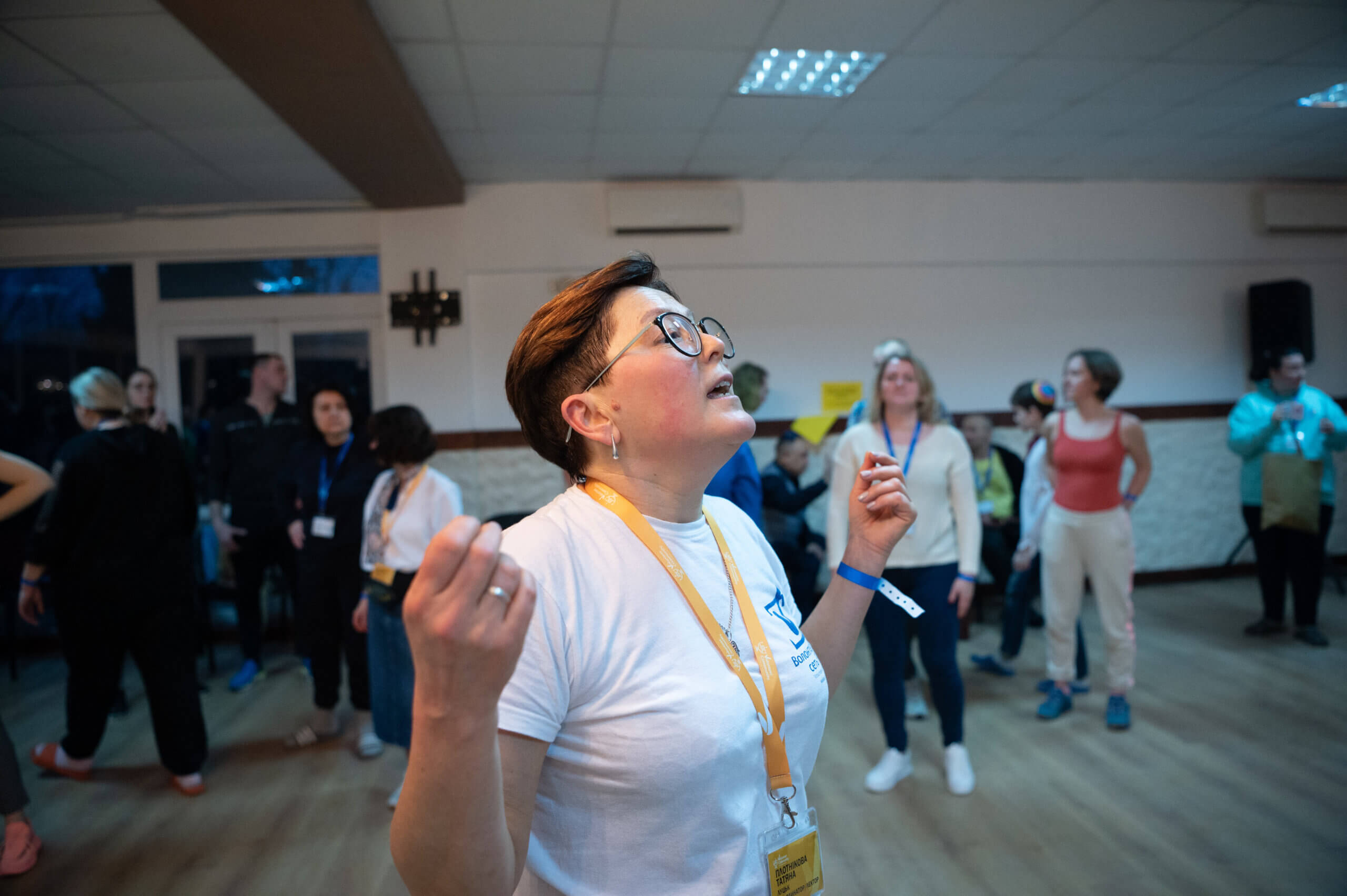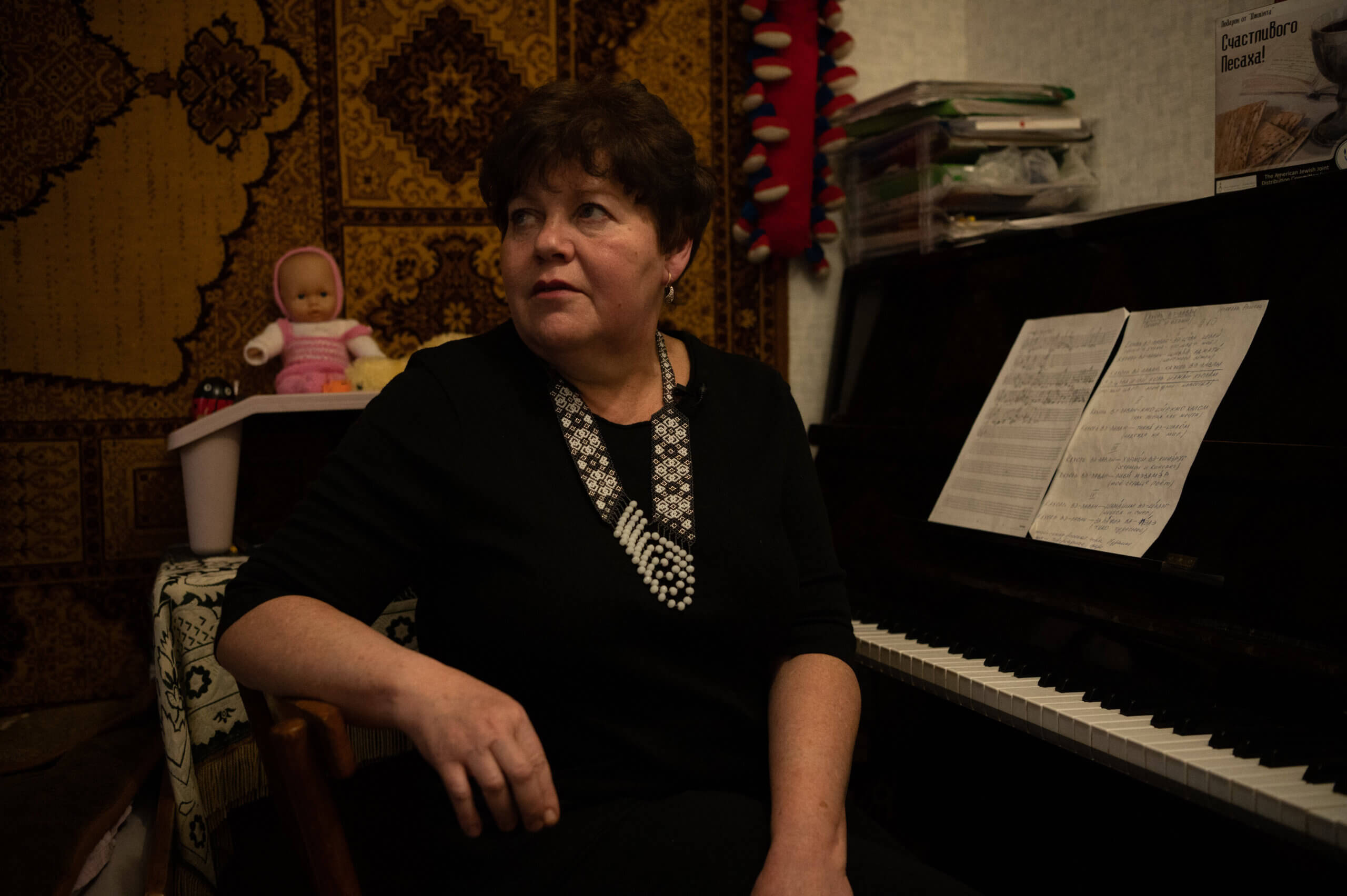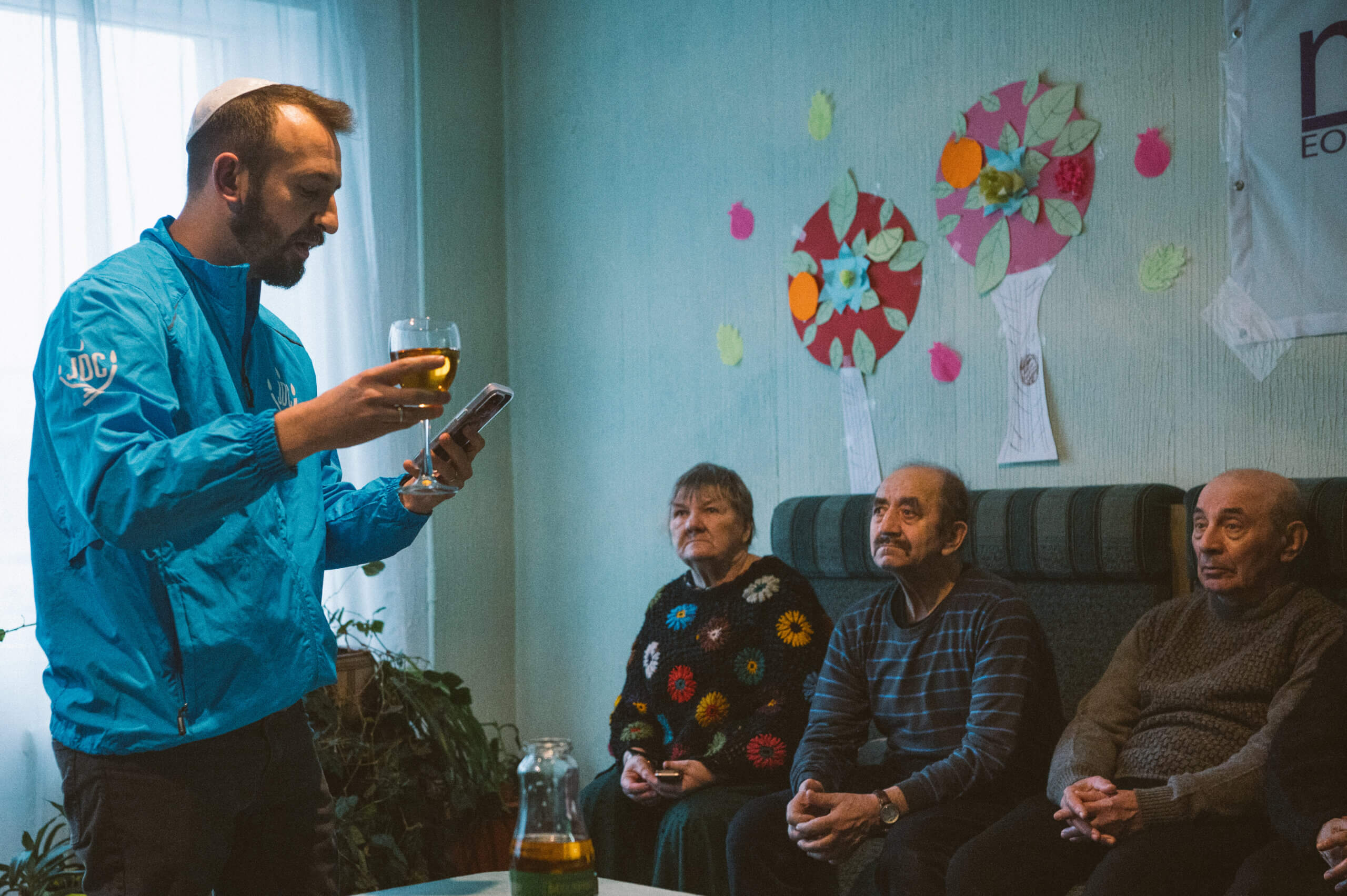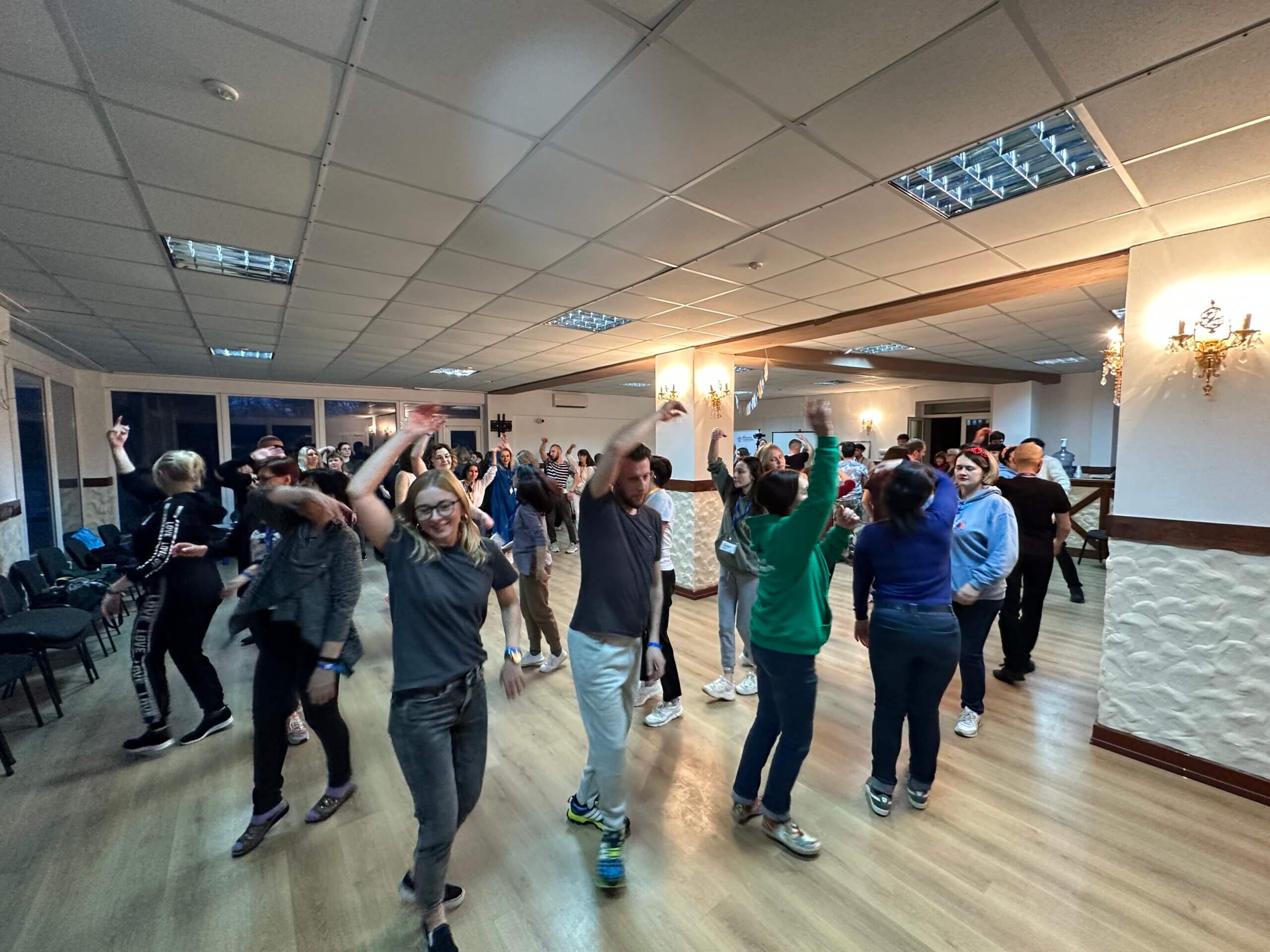Ukrainian Jews channel Miriam as they celebrate their second Passover in conflict
In the midst of fighting and displacement, Ukrainian Jews continue to find hope through song and dance

Graphic by Angelie Zaslavsky
The first thing Olena Simieon thought when she fled eastern Ukraine with her 5-year-old daughter nearly 10 years ago was: Will they need a Jewish musician where I am going?
A longtime singer and pianist, Simieon quickly began performing with the local Jewish choir when she arrived in Lviv. After all, she’d always turned to music to get through hard times.
This week, Simieon will join millions of Jews around the world in marking the Passover holiday, celebrating the exodus of the Israelites from Egypt. For her, though, it’s not just legend, but a story she knows all too well. Since the conflict in Ukraine began last year, the 56-year-old has opened her home to more than 30 displaced Jews from other parts of the country, providing help and hope to those starting over with just the clothes on their backs.

The moment I met Olena, I thought of the prophet Miriam, the sister of Moses — too often relegated to second billing — who famously led Jewish women in song and dance after they crossed the miraculously parted waters of the Red Sea.
It was Miriam who thought to pack a tambourine even as everyone else fled too fast for their bread to rise — resulting in the dry, cracker-like matzo Jews still eat today. In an act of joyful chutzpah, she was brave enough to look at a troubled present and imagine a brighter future, one with time for song.
Other sources in midrash say Miriam didn’t wait for dry land: She lifted her voice in the middle of that shakily split sea, belting out a melody of exultant gratitude even as the waves churned alongside the Israelites fleeing into the liberated unknown.
I like that version better, because it feels not only more likely, but more resonant today. Miriam wasn’t at the happy ending of the Promised Land yet, but she still found music in the middle ground — just like Simieon, who remains committed to paying it forward despite the harsh realities of daily life in Ukraine.
“When there’s a power cut, when there’s no light, life still doesn’t stop. You have to get up and do something anyway,” she told me when I visited Ukraine in February. “You have to believe in goodness, sing, and find the strength to keep going.”
When Simieon arrived in Lviv in 2014, she immediately began receiving humanitarian aid from my organization, the American Jewish Joint Distribution Committee (JDC), which has supported and sustained Jewish life in Ukraine and across the former Soviet Union for decades. She now serves as the choir director at the city’s Hesed, a network of social service centers the JDC established in the 1990s that operates in thousands of locations across the region.

This Passover, modern-day Miriams like Simieon from our Heseds, Jewish community centers, and volunteer hubs will distribute 50,000 boxes of matzo to Jews across Ukraine and conduct Seders and other holiday activities expected to reach 10,000 people, both in-person and online. These efforts — supported by Claims Conference, IFCJ, JFNA, and UJA-Federation of New York — build on our ongoing work caring for more than 46,000 Ukrainian Jews, including isolated seniors, at-risk families, the new poor and displaced people.
There’s another famous story about Miriam that teaches that as she journeyed through the desert, a well of water followed her each step of the way. From Miriam’s passion, from her exuberance, came something life-giving — a wellspring of resilience.
During my travels, I was awestruck by the strength and cheerful confidence of another Miriam: Tatiana Plotnikova, who heads up JDC’s volunteer efforts in Lutsk, a city in northwestern Ukraine that’s absorbed thousands of new arrivals since the crisis began.
Just before Shabbat rolled in, Plotnikova led dozens of Jews in ecstatic movement: a loose, ebullient, defiant hora, the signature circle dance at Jewish celebrations.
“I dance because my soul dances,” she explained to me. “When we sing and dance, we keep our traditions and we declare to the whole world that nothing will break us.”

Plotnikova told me she hasn’t missed a Passover Seder in 23 years. It’s the one event when the entire community gathers — those newly arrived to the city and longtime members, all ages coming together for the traditional holiday meal and a special concert.
This year, she knows who she’s inspired by.
“From Miriam, we learn how to believe — never wavering as we pursue our goals,” Plotnikova said. “That sort of faith sustains you. I give energy to people when I dance, but they fill me right back up.”
If Jews like Simieon can sing, we must shine light on pockets of hope amidst so much suffering. If Plotnikova and her troupe can dance, we must give and serve, marshaling our resources and talents to meet ever-growing humanitarian needs. And if their communities can proudly gather — leading Seders as air-raid sirens blare — we are tasked with telling this new Passover story over and over again.
It doesn’t matter that we’re still making our way through the sea — this, too, is a time for song.
To contact the author, email [email protected]




















